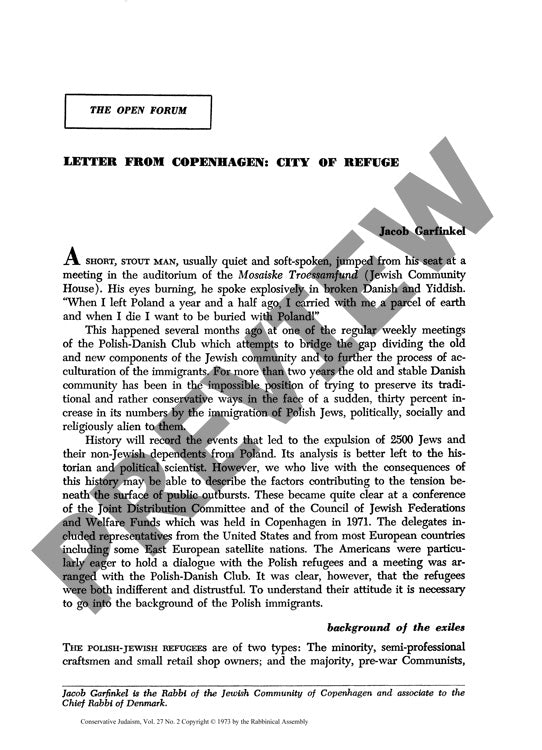Letter from Copenhagen City of Refuge
Couldn't load pickup availability
This ethnographic study examines the resettlement experiences of Polish-Jewish refugees in Copenhagen following their expulsion from Poland in the late 1960s. The research employs participant observation and analysis of community meetings to investigate the tensions arising from the sudden 30% increase in Copenhagen's Jewish population. The methodology centers on documenting dialogue between refugees, Danish Jews, and international Jewish organization representatives during a 1971 Joint Distribution Committee conference. Key findings reveal significant cultural and ideological divisions between the established Danish-Jewish community and Polish refugees, who comprised both secular Communist Party members and traditional craftsmen. The refugees demonstrated deep ambivalence toward religious affiliation, material concerns, and integration into Danish society. Their complex relationship with Jewish identity emerged through their rejection of both traditional religious frameworks and Zionist alternatives, despite acknowledging Israel's 1967 victory as catalyst for their expulsion. The study documents how historical trauma, political disillusionment, and forced migration created lasting barriers to community integration. The research concludes that successful refugee resettlement requires understanding the multifaceted nature of Jewish identity beyond religious or nationalist categories, while highlighting the ongoing challenges of cross-cultural dialogue within diaspora Jewish communities during periods of crisis-driven demographic change.

More Information
-
Physical Description
-
Publication Information
Published 1973
ISBN
-
Publication Credits
Jacob Garfinkel

